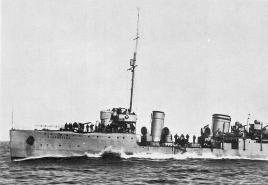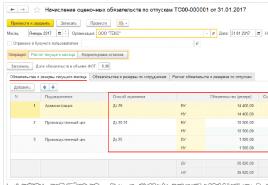Presentations on the topic of electronic libraries. Full-fledged electronic libraries on the Internet, sources of electronic acquisition. Tasks of digital libraries
Slide 2
Definition
Electronic_library is an information system that allows you to reliably store and effectively use various collections of electronic documents (text, visual, sound, video, etc.), localized in the system itself, as well as accessible to it through telecommunication networks.
Slide 3
Reasons for the emergence of electronic libraries
Firstly, the number of publications in the press is growing very quickly. Libraries simply do not have time to process information. The solution is to present periodicals in electronic form in full text with standard search engines.
Secondly, storage space for funds is limited. The creation and use of electronic versions is one of the real ways to solve this problem.
Thirdly, it is necessary to ensure the safety of library collections. To do this, libraries need to create themselves or collect, along with printed publications, their analogues on other media, including electronic ones.
Libraries must also promptly serve users, allowing them to quickly find the information they need. Today, users have a choice: use modern search tools and, without leaving their home or office, view the full text of a document on the Internet, or go through all the circles of traditional library services.
Slide 4
Tasks of digital libraries
providing wider access to documents, the provision of which to readers is difficult or limited (rare books, photo albums, handwritten books, dissertations, etc.)
organizing collections of documents/data existing exclusively in electronic form, cataloging them and ensuring access to them for information consumers
providing users with qualitatively new opportunities to work with large volumes of electronic data
Slide 5
Advantages of digital libraries
The user receives information regardless of time and location - his or her library.
The efficiency of providing users with the necessary literature, documents and data is significantly increased.
The user has the ability to access diverse electronic resources.
The implementation of new forms of library and information services to users is facilitated.
Documents available in limited quantities in libraries become available to a significantly larger number of users.
Working with digital electronic documents can go far beyond simply reading text or viewing an image. Fragments of source data can be used in your work by combining, adding and editing materials.
A quick and high-quality search for certain fragments of a document, its semantic analysis and other types of software processing are possible.
Space and space savings are achieved compared to a conventional library.
Slide 6
Classification of digital libraries
- A separate electronic library is an ordinary classical library, but completely automated.
- An integrated electronic library is a group of several independent libraries united by a common theme and communication network.
- Composite electronic library is a virtual library that provides uniform access to resources and thematic materials scattered across the network.
Slide 7
Types of digital libraries
Slide 8
Examples of digital libraries
Catalog of electronic texts on Russian and foreign literature, culture, philosophy, history and other humanitarian disciplines.
On the site you can download books of all genres and authors who lived in different times for free.
More than 100 genres of e-books. You can download books not only in fb2 file format, but also in txt and rtf formats. You can find any fb2 books using the site search. You can read any books directly on the site without downloading them.
Domestic and foreign prose and poetry, literature on philosophy, medicine, psychology, etc.
You can download books, reference books, magazines and dictionaries for free.
View all slides
summary of presentationsBooks on the Internet
Slides: 17 Words: 474 Sounds: 0 Effects: 0What to read to children on the Internet. Internet resources to support children's reading. Website of the Russian State Children's Library. Regional Library for Children and Youth named after. A.S. Pushkin. Book hit parade. What a children's book might look like on the Internet. Children's network library. BiblioGuide. "Fairy Tale" website. Fairytale almanac “Read it.” Magazine "Murzilka". Magazine "Bonfire". Vladislav Krapivin. Kir Bulychev. The Wizard of Oz. Website of children's writer Tamara Kryukova. Links to Internet resources for children. - Books on the Internet.ppt
Digital Library
Slides: 31 Words: 1449 Sounds: 0 Effects: 0Libraries and the Internet
Slides: 21 Words: 1027 Sounds: 0 Effects: 0Integrated library and information space. Internet and information. Time of excessive information load. Need for knowledge. Knowledge Society. Expert groups. Functional fragmentation. Libraries in the Internet era. Influence. Modern library. Library catalogues. Libraries and Google. Library Links. Possibility of choice. Library portals. Libraries and the Internet. Library corporations. Protocol meaning. Distributed information system. The role of standards. Library development trends. - Libraries and the Internet.ppt
Electronic libraries
Slides: 25 Words: 1225 Sounds: 0 Effects: 0Reading without limits. Library of Maxim Moshkov. Aldebaran Library. Online library of Flibust. Scientific electronic library. World Digital Library. Magazine room. Digital library. Electronic library Bookz.ru. Fundamental electronic library. Library. Library. Russian virtual library. Library online. Electronic library book-online. Open Russian Electronic Library. Librarian.ru. Information process. Gumer Library. Library system IQLib. GPIB Electronic Library. Library of DonNTU. Digital catalogue. - Electronic libraries.ppt
Union catalog of libraries
Slides: 26 Words: 995 Sounds: 0 Effects: 0Union catalog of libraries. Continuation. Two main models of electronic union catalogues. One entry. Model SK. SKB APK. EC in the libraries of the National Research University. Model SKB APK. Efficiency of creating SKB. Efficiency. Opportunity to provide users with new services. Creation of a single information field. SKB structure. Books. Magazines. Selection of documents at SKB NRU. Publications of the National Research University of Russian Academy of Agricultural Sciences. Process documents from 2000 to 2010. Log processing. Abstracts. Dissertations. Stages of inclusion of publications in the EC. Instructions. Instructions for preparing sheets. Recommendations for using the exchange format. - Union catalog of libraries.ppt
Internet resources in the library
Slides: 38 Words: 4455 Sounds: 0 Effects: 0Internet resources in library practice. What is the Internet. Internet resources in the library. Russian Committee of the UNESCO Program. Interregional Center for Library Cooperation. Network literature (seteratura). Network literature. Prologue. Smuggling. Modern literary magazines in Russian. Non-fiction. Today we can already talk about the main trends. Literary studies. My shore. The best literature of our time. Reading-21. Magazine room. Problems of local government. Youth technology. TM headings. "SchoolLife.ru". "Ecology and Life". "Ecology of production". - Internet resources in the library.ppt
Electronic libraries of Russia
Slides: 11 Words: 339 Sounds: 0 Effects: 0Electronic libraries in Russia. Projects in the library environment. National level projects. National EB. Consortium. Library of educational resources. Arbicon. Regional level projects. Trends. Limited access. Questions. - Electronic libraries of Russia.ppt
Library electronic catalog
Slides: 59 Words: 2317 Sounds: 0 Effects: 0Development of an access information system. It is easy to see, difficult to foresee. Creation of an access information system. You can drown in a sea of paper information. Access space. World experience. Europeana. Stages of work. Composition of co-performers. Organization of project work. Client access devices. Information security subsystem. Technology platform. One of the system's tasks. Additional services. The system is not a replacement for EBS and EB. Full compliance. Application management processes. External resource management processes. Processes of formation of a unified catalogue. - Library electronic catalogue.pps
Electronic library for children
Slides: 35 Words: 1599 Sounds: 0 Effects: 0Children and librarians. Problems of children's use of Internet resources. Children's browsers. Filters. What to do with mobile content. Expert selection of the best content. "Guides" to the best resources for children. Example. The best content for children. Problems of expert selection of websites for children. Conclusions. The role of children's and school librarians. National Library of Ukraine. Electronic library for children. Electronic library for children. The best (“wonderful”) sites. Electronic library for children. Electronic library for children. International Children's Electronic Library. - Electronic library for children.ppt
Electronic library for school
Slides: 26 Words: 1067 Sounds: 0 Effects: 0School electronic library project. Introduction of the mini-group participants. Goals and objectives of the project. Relevance of the project. One of the “repositories” of information are libraries. Description of TsORov. Electronic library for school. Conclusions. Approaches to the classification of digital resource centers. Contents and features of the definition of an electronic document. Approaches to the classification of COR. Classifications of TsORs. Information structure of the electronic library. Library. Navigation system for electronic library resources. The user gets access to the main sections. System for searching resources in an electronic library. - Electronic library for school.ppt
University Library Online
Slides: 21 Words: 1058 Sounds: 0 Effects: 0University Library Online. Features of the aggregator. Principles for selecting literature for EBS. Historically, the most representatively represented directions. History of 4000 books. The fastest growing collections of current literature. Categories of literature contained in the EBS. List of publishers. Replenishment with university publications. “University Library Online” today (brief statistics). Publishing collections. Multimedia content. Multimedia content of the University Library Online. Start page. Open catalogue, section “Textbooks for Universities”. - University Library online.ppt
Library information resources
Slides: 33 Words: 1869 Sounds: 0 Effects: 0Reference and information resources and services in the practice of libraries. Changes in the information sphere. Reference and information resources. Search engines. Electronic libraries. Professional reference resources. Library electronic resources. Municipal library resources. Electronic legal systems. Electronic catalogues. Number of records. Formation and use of electronic resources. Prepared on the basis of our own databases. Analysis of resource use. Use of electronic resources. Rural areas. Reference and bibliographic services. -
Libraries have become one of the most popular Internet resources. They are called both virtual and electronic, digital libraries. The peculiarity of this kind of library is that a certain part of the information collection (or the entire collection) after digital processing becomes available via networks, CD or DVD. They can be virtual, that is, exist, so to speak, “without walls,” or rely on the resources of existing traditional libraries. In the latter, catalogs are usually digitized first, and the data necessary for users is sent by email, regular mail or fax. To satisfy the requests of readers, specially trained staff works using modern means of information and communication technologies. The name “electronic libraries” is the most frequently used in Russia.
Electronic libraries and their role for professional activities 1. Reducing the cost of distributing regulatory, educational, and methodological information through the use of Internet technologies. Already, a lot of materials do not need to be printed, stored, transported and distributed. Electronic publications help expand the capabilities of authors. Even small-circulation and therefore low-profit publications can find their readers and bring a positive practical effect. 2. The time it takes for the necessary information to reach its consumers is significantly reduced. 3. The capacity of storage facilities is increasing, sometimes suffering from a lack of necessary space and appropriate equipment. 4. Access to rare sources is expanding thanks to their digitization. 5. The ability to quickly access all the information available in the world is expanding.

Many countries around the world are concerned about creating digital libraries. In the USA they began to form in the 80s of the 20th century, in Great Britain - in the early 90s of the 20th century. The “Digital Libraries of the 21st Century” project is being implemented in Japan, and the “Global-Info” electronic library is being created in Germany. Currently, more than one and a half thousand large and medium-sized libraries in different countries of the world provide access to their electronic catalogs; in the USA alone, about 96% of public and 85% of university libraries are connected to the Internet. Catalogs of national libraries of 47 countries are presented at:

Electronic libraries of Russia In the Russian-language part of the Internet alone, the number of noticeable electronic libraries is already several hundred, although not all of them are regularly updated with new materials. State electronic libraries strictly observe copyrights and strive to use electronic copies as an additional source of funds, which, however, is natural, since it is necessary to purchase equipment, pay for the work of specialists, create funds, and so on. Private collections sometimes have a significant number of digitized materials in the public domain, however, they are created, most often, in violation of intellectual property rights, without guaranteeing that the source corresponds to the original, or protection from plagiarism. What materials can a teacher, for example, find for his professional activities in free access in Russian electronic libraries? This largely depends on the status and funding of the library, its connections with research centers. The largest number of reliable electronic materials and a wide range of services offered among electronic Russian libraries are available in federal libraries.

Russian State Library The largest Russian library is the Russian State Library. On the library website you can work with catalogs for free. The RSL forms the funds of the Open Electronic Library, considering this work as a service to the spiritual revival of the nation. At the beginning of 2005, 6,602 books, 522 dissertations, textbooks, maps, notes, and illustrations were already publicly available. The priorities are the history and culture of Russia, the history and culture of Moscow, school literature, school textbooks, dissertations and dictionaries.

For the fourth year now, the Russian National Library has been selectively translating publications stored in its collections into electronic form, which marked the beginning of the creation of the RNL electronic library - The digital library includes handwritten and archival documents, unique isographic materials, first-printed and hand-colored maps, rare books. The earliest printed materials date back to the 11th century. For example, you can read the first Russian newspaper Vedomosti in years for free. The illustrated catalogs of exhibitions dedicated to cultural values and historical events in Russia are very interesting. Interesting collections of Internet resources on law, medicine, biology, local history. Electronic delivery of printed documents from the RBN funds upon user orders (with the exception of archival, handwritten, newspaper materials) operates on a paid basis.

State Public Scientific and Technical Library The State Public Scientific and Technical Library is one of the largest federal libraries. An important feature of this library is the development of a Virtual Library project - which helps to find the necessary Internet resources. The database contains more than two thousand online magazines and newspapers.

Those familiar with foreign languages can visit the website of the All-Russian State Library of Foreign Literature named after. M.I. Rudomino - and for history buffs - the State Public Historical Library of Russia -

For biologists, many interesting resources are presented in the electronic library of the Central Scientific Agricultural Library of the Russian Academy of Agricultural Sciences - The distributed catalog makes it possible to work with descriptions of books, journals and publications of the BEN RAS, catalogs of the Russian State Library, State Public Library for Science and Technology and the Moscow State University Library, the Agros database of the Central Scientific Agricultural Library of the Russian Agricultural Academy and other sources . The section “Electronic dictionaries, reference books” presents such resources as: “Agriculture: a large encyclopedic dictionary”, “Encyclopedia of Russian nature”, “Veterinary encyclopedic dictionary”, “Encyclopedia of seeds”, “Biographical encyclopedia of the Russian Academy of Agricultural Sciences, VASKhNIL” and others. There you can also clarify the Latin names of plants and find out the meaning of scientific terms used in genetics and breeding of farm animals. The largest agricultural library in the world offers paid services for delivering copies of literature sources from the collections of the Central Scientific Library on electronic media to a remote user.

Unfortunately, national and republican libraries, not to mention city and other local libraries, have much less ability to provide modern services using the Network. At best, this is work in catalogs and the ability to order copies, and most often library websites are advertisements. Almost all of them are at the stage of creating an electronic catalog, without providing free access to electronic publications, but even this is a great help for teachers, since now it is possible to use the Internet to work with the catalog in a convenient place and at a convenient time, and then apply for the necessary publications directly to your local library. The most functional is the website of the National Library of the Republic of Tatarstan - in which, since 2002, work has been carried out to create a fund of electronic publications in order to provide readers with access to the most valuable and unique publications. The result of this activity was the electronic collection “Thousand-Year Kazan”.

The most complete available email addresses of Russian libraries are presented on the official portal of the Libraries Department of the Federal Agency for Culture and Cinematography of the Russian Federation - Here links to the websites of federal, national and republican, central universal libraries of the constituent entities of the Russian Federation, industry and special libraries are offered; libraries of museums, government bodies and trade unions and others.

Libraries of higher educational institutions contain great potential opportunities. The world's leading universities give users the opportunity to work with the catalog in their electronic libraries and a variety of scientific publications in free access. Access to the collections of Russian universities is most often carried out on a paid basis, but, as a rule, you can work with good catalogs in several branches of science for free. An example is the catalog of the fundamental library of the St. Petersburg State Polytechnic University. The Moscow State University Library is not accessible to external users, as it has entered into a license agreement with the Scientific Electronic Library to connect computers on its university local network to the resources provided by the electronic library, so only the libraries of some faculties are available for free use on the Internet.

Moshkov Library Of private collections, the most significant is the free library of Maxim Moshkov - numbering several thousand digitized texts. Sections: fiction, science fiction and politics, technical documentation and humor, history and poetry, Russian rock, tourism and parachuting, philosophy, etc. Many people (for example, publishers) are trying to close it due to copyright infringement. In turn, M. Moshkov believes that the existing copyright law threatens the existence of free electronic libraries, and even news sites and Internet publications. What can you find in the Moshkov library? For example, the “Russian Classics” section contains links to full-text works of more than 200 authors - from classic texts by Pushkin, Turgenev and Tolstoy to little-known ones, for example Dmitry Oznobishin, Alexander Shakhovsky, etc. The poetry section with almost 250 names of Russians and foreign poets.

Aldebaran Library Another large-scale library, the Aldebaran Library, contains books of various genres: fantasy, detective stories, adventure and children's literature, ancient books. At the time of writing these lines, works by 6091 authors can be found on Aldebaran. The structure of this library is slightly different. Firstly, there is a category by genre. Secondly, in parallel with this principle, a rubrication based on literal access has been implemented - by the names of the authors. In addition, the bottom line provides a list of the latest additions to the library (New Books), a list of books whose electronic versions have been updated, corrected, and supplemented (Updated Books). There are also reader reviews of what they read: there is a comment form under each posted text (Reviews), feedback forms (Guest and Forum). All this makes the library interesting and easy to use.

There is no point in continuing the description of existing libraries: they are structured almost identically and differ only in the list of authors (and even then not always) and the volume of materials. What can you find in them besides texts? For example, the non-profit electronic library Im Werden contains a lot of interesting materials, some of which are unique. On the left side of the site page we see a rubricator, where among the posted texts (Old Russian literature, Russian literature of the 18th century, 19th century, 20th century, modern literature) you can find rare materials. In the “Author Reading” section, for example, 104 musical fragments with recordings of the author’s reading are posted. If the voices of Akhmatova, Chukovsky, Brodsky, Okudzhava, Gorodnitsky, Bitov can still be heard today from various sources, then the voices of Zoshchenko (the only surviving recording), Andreev, Bryusov, Bunin, Voloshin, Gumilev, Yesenin, Mandelstam, Mayakovsky are rare recordings . Of no less interest is the “Documentary Video” section, where you can find videos of Brodsky, Akhmatova, Yesenin, Zabolotsky, Pasternak, Tarkovsky. In the same library you can find works on linguistics, philosophy, psychology, pedagogy, books from the Academia publishing house published in the 30s of the 20th century.

With all the wealth of sources presented in various online libraries, the real problem is the accuracy and reliability of the texts posted in electronic libraries. It so happened that in the early stages of the development of the Internet (and even now in many respects) electronic libraries were collected by enthusiasts, people who did not have professional skills in the bibliographic or philological fields. Consequently, questions of reliability and authenticity of the presented text turned out to be largely secondary. Therefore, you can encounter incorrect formatting, typos, and fragments of text presented as whole texts. Unfortunately, from a scientific and academic point of view, most modern electronic libraries are not reliable enough sources.

Speaking about digital libraries, one cannot help but pay attention to two specialized search engines. The Byblus project is a bibliographic catalogue. As it is written on the website, “Biblus is all the books of Russia. A bibliographic catalog that includes 1.1 million books, about 300 thousand authors and the most detailed (125 thousand headings) UDC rubricator, clearly structuring and describing almost all areas of human knowledge and books on them.” Thus, this is not an electronic library in the usual sense, but a huge and convenient catalog of “paper” books intended for bibliographic search. There is also a search system designed to search for works posted in electronic libraries. The site is an attempt to create a specialized search engine in the field of e-books, which has now indexed more than one. In addition to basic search, interesting features of the service are the following: · the ability to search for books within a specific library; · the ability to search for books in several libraries; · the ability to subscribe users to updates of specific books in the electronic library; · the ability to search for both individual words and exact phrases.

Federal libraries - Russian State Library (RSL) - Russian National Library - State Scientific Pedagogical Library named after. K.D. Ushinsky Russian Academy of Education (GNPB RAO) - All-Russian State Library of Foreign Literature named after. M.I. Rudomino - State Public Historical Library of Russia (GPIB) - State Public Scientific and Technical Library (SPNTL) - Central Scientific Agricultural Library (TSNSHL)

National and republican libraries of the Russian Federation - National Library named after. A.-Z. Validi of the Republic of Bashkortostan (Republic of Bashkortostan, Ufa) - National Library of the Republic of Karelia (Republic of Karelia, Petrozavodsk) - National Library of the Komi Republic (Komi Republic, Syktyvkar) - National Library of the Republic of Tatarstan (Republic of Tatarstan, Kazan) - National Library Republic of Chuvashia (Chuvash Republic, Cheboksary)

Foreign libraries - The Library of Congress (US Library of Congress) - The British Library (British Library) - Biblioteca Nacional de Espana (National Library of Spain) Bibliotheque nationale de France - (National Library of France)

The provision of materials in electronic form means that, with the appropriate hardware and software, users can access the materials regardless of location. There is no longer any need to personally come to the library where the materials are stored, as was the case with printed publications. Thus, there is a great opportunity to expand access to funds, while avoiding the rapid deterioration of materials. Creating a scenario for providing access to large quantities of resources over the network requires significant financial and human resources. What is certain is that electronic libraries will develop and improve. Gradually, from copying printed publications and creating collections of digitized materials, libraries will move on to performing more complex work, and will begin to perform not only consulting, but also teaching functions. Moreover, in the future, digital libraries will turn into “public centers of the information society.” The creation of large and accessible national electronic libraries contributes to a more efficient use of information, which in the future will have a positive impact on the level of development of science, technology, culture and will improve the education system. Electronic libraries that provide the opportunity to work with modern electronic educational resources in free access mode will help improve the efficiency and quality of professional activities.

Used literature 1. Anokhin S.Yu. Electronic libraries // Journal “Public Education” 2 (1355), S Bochenkov V. There is no need to live in everyday consciousness, or How to strengthen the position of “Reading Russia”? // Teacher's newspaper The future of electronic libraries in the consolidation of the scientific, educational and cultural community Garbo O. Information services, libraries, archives // UNESCO World Report on Communication and Information in the years. Chapter Methodological and literary Internet server Russian scientific electronic journal “Electronic Libraries” // Volume 3. - Issue Tonneev F. Waiting for the creator. Love the e-book - a source of knowledge // Teacher's newspaper Fred Guy. Development of electronic libraries: the experience of some national libraries in North America, Australia, Asia and Europe // Russian scientific electronic journal. - Issue Shreiberg Ya. L. Libraries and information technologies: ten years later. Annual Plenary Report of the International Conference. - Crimea, 2003

“Knowledge is such a precious thing that there is no shame in acquiring it from any source.” Thomas Aquinas (c)


A) according to the degree of accessibility: – freely available – implies completely open access to documents; – conditionally accessible – presenting in the public domain a fragment of a document and a method for ordering the full text; – commercially available – providing resources on the basis of a reimbursable contract only based on the results of authorization and in the presence of clearly defined financial relationships.


C) by type of publication: – mono-documentary – contain documents of only one format (for example, only audiobooks, text documents, multimedia textbooks, etc.); – polydocumentary – contain documents of different formats (text documents, audiobooks, videos, etc.).

D) by the method of creation: – generated – collections that are created by the document holder himself; – summary – created from existing documents and collections; – mixed – organized from generated (created by the holder) and aggregated (collected from different sources) documents.



Library of Old Russian Literature (

Gaudeamus (Military literature (


Electronic library of Maxim Moshkov (

Electronic library of fiction (Non-profit electronic library "ImWerden" Non-profit electronic library "ImWerden" (


An electronic library is an ordered collection of heterogeneous electronic documents equipped with navigation and search tools. It can be a website where various texts (usually literary, but also any others, even computer programs) and media files are gradually accumulated, each of which is self-sufficient and can be demanded by the reader at any time.





Fundamental Electronic Library (FEB) “Russian Literature and Folklore” (

University information system "Russia" (Electronic library IQLib (

Google Electronic Library (Google Book Search –



Educational project of Runet (Electronic Libraries of Russia (








